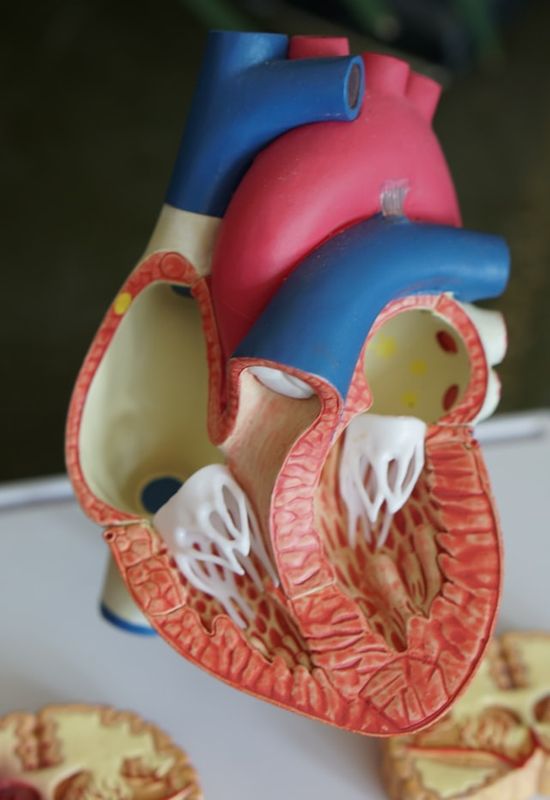What You Should Know About the Adventist Health Studies
You may have heard that Seventh-day Adventists care about health.
But what you may not know is that Adventists have been the subjects of long-term research into lifestyle and health. Since 1958, researchers from Loma Linda University School of Public Health have conducted five cohort studies. Collectively, these studies are known as the Adventist Health Studies.
These studies have helped confirm the incredible health benefits of the unique Adventist diet and lifestyle. They give us confidence that the Bible’s principles of health do work!
Read on to learn what you need to know about each study:
- Why do Seventh-day Adventists care about health?
- Why study Adventists?
- Study #1: Adventist Mortality Study
- Study #2: Adventist Health Study-1
- Study #3: Adventist Health Air Pollution Study
- Study #4: Adventist Health Study-2
- Study #5: Adventist Religion and Health Study
- Key lifestyle takeaways from the Adventist Health Studies
Why do Seventh-day Adventists care about health?
Seventh-day Adventists emphasize whole health—physical, mental, social, and spiritual. These facets are connected: Physical health affects all the others, including the spiritual.
We also recognize that our bodies belong to God and that He desires us to honor Him in the way we care for them (1 Corinthians 6:19–20). And we do so through our lifestyle choices.
Because Adventists live such a healthful lifestyle and tend to have a lower incidence of disease, researchers wanted to see if there was a connection. The purpose of the Adventist Health Studies has been “to measure the link between lifestyle, diet, disease, and mortality among Seventh-day Adventists.”
These studies have increased overall knowledge of lifestyle diseases—diseases that result from people’s day-to-day choices for their diet, activities, and environment.
Why study Adventists?
Adventists are an ideal demographic to study. They are very similar to one another in their lifestyle: They don’t smoke or drink, and they live active lives. But their eating habits cover a spectrum—meaning that researchers can study the impact of dietary patterns without the interference of other factors.
Adventists fit into the following dietary categories, as was the case for Adventist Health Study-1 and Adventist Health Study-2:
- Vegan—doesn’t include any animal products
- Lacto-ovo vegetarian—includes eggs and dairy
- Pesco-vegetarian—includes eggs, dairy, and fish
- Semi-vegetarian—includes meat less than once per week
- Non-vegetarian—includes meat more than once per week
Study #1: Adventist Mortality Study
The Adventist Mortality Study ran from 1958 to 1966 and looked at the death rates of Californian Adventists. The American Cancer Society provided the funding because it was conducting a similar study on the general population and wanted to compare the results. Dr. Frank Lemon and Dr. Richard Walden from Loma Linda University School of Medicine led the study.
Participants
The study included 22,940 Seventh-day Adventists who lived in California.
The methods
The researchers surveyed the participants and then followed up with them after five years. Though the study spanned eight years, one more follow-up took place 25 years later.
The results
The main finding of the study was this:
Adventists live longer than the general population. Their death rates are lower for all causes of death, including multiple kinds of cancer, cardiovascular disease, stroke, and diabetes.
This was the case even when Adventists were compared with only non-smoking, non-Adventists. Thus, other aspects of lifestyle made a difference, too!
Study #2: Adventist Health Study-1 (AHS-1)
From 1974 to 1988, the National Cancer Institute sponsored Loma Linda University to do a second study: Adventist Health Study-1. This time, instead of comparing Adventists and non-Adventists, researchers wanted to investigate the relationship between diet and cancer. In 1981, they also expanded it to cover cardiovascular disease.
Dr. Roland Phillips was the head researcher this time, followed by Dr. Gary E. Fraser who took over after his death in 1987.
The participants
AHS-1 involved 34,192 Adventists who lived in California. They had to be at least 30 years of age or older, though the average age of the women was 53, and the average age of the men was 51. Most of them reported that they exercised regularly.
The methods
AHS-1 surveyed each participant using a questionnaire about lifestyle and medical history. It included 60 dietary questions.
For six years, researchers used follow-up surveys to assess the participants every year. They also looked at hospital and medical records and the National Death Index.
The results
Findings from AHS-1 covered life expectancy, cancer, cardiovascular disease, and their connections to diet. It found that the closer participants adhered to a total vegetarian diet, the lower their risk for chronic disease.
Let’s start with the life expectancy findings:
According to the survey, Adventist men live 7.3 years longer and Adventist women live 4.4 years longer than the general population. For vegetarian men, the number increased to nearly 10 years!
The researchers believe there are five contributing factors:
- Never smoking
- Maintaining a normal body weight
- Exercising
- Eating a vegetarian diet
- Eating nuts
Next, here are some things they noticed related to cancer:
- Vegetarians have a lower risk of all types of cancer compared to non-vegetarians.
- Those who ate high-fiber foods—fruits, vegetables, grains, and legumes—had a significant decrease in colon cancer risk.
- Meat consumption many times per week may increase the risk of colon cancer by up to 60%.
- Foods that may help lower cancer risk are legumes and dried fruits (for pancreatic cancer); fresh fruits (for lung cancer, stomach cancer, and ovarian cancer); and tomatoes and soy milk (for prostate cancer).
And related to cardiovascular disease?
- Adventists who had the same risk factors (diabetes, obesity, and a history of smoking) for cardiovascular disease as the general population increased their risk of heart attacks, too.
- Men who ate two or more servings of beef a week had an increase in fatalities from CHD (coronary heart disease).
- Eating whole wheat bread instead of white bread may lower the risk of cardiovascular disease.
- Nuts seemed to make a big difference, too. Those who ate nuts one to four times a week decreased their risk of nonfatal heart attacks by 74% and fatal CHD by 73%.
Study #3: Adventist Health Air Pollution Study (AHSMOG)
The Adventist Health Air Pollution Study is a substudy of AHS-1. It began in 1977 and has continued to the present. Its purpose has been to study the link between air pollutants and respiratory diseases.
The study had many sponsors:
- National Cancer Institute
- National Heart, Lung, and Blood Institute
- National Institute for Environmental Health Sciences
- Environmental Protection Agency
- American Cancer Society
The participants
Researchers chose 6,338 individuals from those surveyed during AHS-1.
The methods
Participants filled out respiratory symptom questionnaires multiple times (in 1977, 1987, 1992, and 2000). They were specifically watched for coronary heart disease, cancer, and death.
The results
AHSMOG helped to show some of the links between air pollution and various chronic respiratory conditions, such as asthma, bronchitis, and lung cancer.
Study #4: Adventist Health Study-2 (AHS-2)
The Adventist Health Study-2, again sponsored by the National Cancer Institute, began in 2002 and continues to the present. Its purpose was to understand the effect of food and certain nutrients on cancer and heart disease.
Dr. Fraser became the head researcher assisted by ten other senior researchers. The study employed a total of 50 people.
The number of participants took the research to another level, too.
The participants
Rather than sticking to Adventists in California, AHS-2 recruited participants from all across the United States and Canada for a total of 96,194 people. Many were Caucasian, but nearly 26,000 were African Americans, making this one of the few large health studies of black Americans.
The methods
Compared to AHS-1, the survey was much longer. It included 594 questions about lifestyle and medical history but especially zeroed in on dietary patterns. It had a food frequency questionnaire with more than 200 food items. And participants had to describe all the food they ate for six different days.
Follow-up included surveys, hospital records, and records from the National Death Index.
The results
AHS-2 showed significant correlations between diet and chronic conditions. The closer people were to eating a vegan diet, the lower their cholesterol, blood pressure, and risk of diabetes and metabolic syndrome. They were also less likely to get certain types of cancer (breast, prostate, and colon).
The researchers saw the same progression from non-vegetarians to vegans when it came to weight and BMI (body mass index). In fact, vegans had lower BMIs and weighed an average of 30 pounds less than non-vegetarians of the same height.

Researchers believe that eating meat is not the only factor, though. They noticed that the vegans and vegetarians tended to live healthier lives in general: getting more sleep, eating more fruits and vegetables, consuming less saturated fat, and having a higher intake of beans and nuts.
The study looked at other areas too:
- The connection of highly processed foods to higher mortality1
- The impact of protein (vegetarian or otherwise) intake on wrist fractures in women
- Vitamin D levels in those who eat a vegetarian diet
- The effect of vitamin B-12 supplementation on B-12 levels in the body
Study #5: Adventist Religion and Health Study (ARHS)
The Adventist Religion and Health Study, a substudy of AHS-2, began in 2006 and has continued to the present. It is funded by the National Institute of Aging and looks at the relationship between religion, upbringing, and health.
The participants
ARHS involved 11,000 North American Adventists from AHS-2.
The methods
Participants in the ARHS received an extra survey that asked them questions about the following:
- Religious beliefs and practices
- Stressful life experiences
- Psychological characteristics
- Social life
Some of the participants living in California underwent testing of blood and urine, physical performance, memory, and blood pressure.
A follow-up survey went out to participants in 2009.
The results
Preliminary findings of ARHS include:
- Adventists tend to experience better mental health than non-Adventists.
- Religious coping methods—such as seeking help from God, looking for lessons in a difficult situation, or praying—seemed to decrease depressive symptoms in those who were divorced.
- Traumatic life situations may contribute to fibromyalgia.
- People with an abusive upbringing may be less religious as adults and struggle more with negative emotions.
- People who keep Sabbath may have better mental health.
What are key lifestyle takeaways from the Adventist Health Studies?
The Adventist Health Studies provide overwhelming evidence for the benefits of the Adventist lifestyle, particularly a plant-based diet. As you’ve been reading the results, you may be wondering how you can apply them to your life.
Dr. Gary Fraser, head researcher of AHS-2 for many years, asked in a presentation: “So, what’s a sensible person to do?”
No doubt, following the Adventist lifestyle principles makes a difference. The principles are simple: a healthy diet, water consumption, exercise, rest, sunlight exposure, fresh air, self-control, and trust in God.
When it comes to diet, Dr. Fraser offers the following suggestions based on the study results2:
- Focus on a vegetarian diet (though fish on occasion may be beneficial).
- Minimize the amount of highly processed foods you eat.
- Cut dairy intake, but be sure to get plenty of plant-based calcium.
- Enjoy small quantities of nuts.
- Supplement with vitamin B-12, if you are over the age of 60.
- Get plenty of plant-based protein.
Note: These suggestions are not meant to be taken as medical advice. Be sure to consult your doctor and/or a registered dietitian for more specifics about your personal situation.
Science gives us greater confidence in God’s ways.
For the past 150 years, Adventists have promoted a healthy lifestyle and diet. During much of that time, we shared about the difference it made in our lives. But never before had our lifestyle habits been evaluated in a full-blown scientific study.
The Adventist Health Studies have changed that. They give us greater confidence that the principles of healthy living do reduce lifestyle disease risk.
The result?
Optimum physical, mental, and spiritual health!
- “Gary Fraser, MBChB, PhD – New Results from Adventist Health Study 2,” YouTube, March 30, 2021. [↵]
- Ibid. [↵]
Related Articles
Questions about Adventists? Ask here!
Find answers to your questions about Seventh-day Adventists
More Answers
The Health Benefits of Fresh Air You Should Know About
The Health Benefits of Fresh Air You Should Know About“When you can’t breathe, nothing else matters,” the American Lung Association tells us. And while that’s true, the kind of air you’re breathing will determine the health benefits you experience. Breathing fresh...
What Do Seventh-day Adventists Choose to Eat?
What Do Seventh-day Adventists Choose to Eat?Food blogs overwhelm the internet; food fads are all the rage; and copycat and healthy versions of food are the subject of many a get-together. Eating—and eating the best way—is a big deal. And everybody has a different...
10 Incredible Ways Sunlight Can Improve Your Health
10 Incredible Ways Sunlight Can Improve Your HealthAre you concerned about sunlight’s negative effects? You might be the one who lathers on the sunscreen and covers up when you go outside. Or maybe you avoid being outside as much as possible. You might be surprised,...
Why Is Water So Important?
Why Is Water So Important?We all know that water is a substance we can’t live without. It quenches our thirst and keeps us hydrated on the inside. And it’s necessary for hygiene and cleansing on the outside too. But did you know that the cleansing properties of water...
Ellen White’s Writings and the Adventist Health Message
Seventh-day Adventists are known for their emphasis on healthy living. And Ellen G. White was a significant influence in the development of this priority and practice among Adventists.
Health Clinics
Ellen White and Adventist Healthcare—Ahead of Their Time Medical care in the mid-1800s was primitive, to say the least. Basic concepts we take for granted—such as proper handwashing or recognizing the dangers of bloodletting—were nonexistent. And doctors often had...
What Did Ellen White Teach about Vegetarianism?
What Did Ellen White Teach about Vegetarianism?One thing you might have heard about Seventh-day Adventists is their emphasis on a vegetarian lifestyle. If you’re wondering why that is, it goes back to our church’s humble beginnings: As Adventists studied the Bible,...
How Ellen White’s Teachings Can Improve Your Health
How Ellen White’s Teachings Can Improve Your Health Healthcare in the nineteenth century was said to leave “more disease than it took away” with its use of bloodletting and “medicines” like mercury and arsenic.1 As people questioned these methods, new approaches...
Change Your Perspective on Life with These 5 Mindsets
5 Biblical Mindsets to Change Your Life for the Better Sometimes, life is just plain hard. There’s no way around it. So would thinking about things differently really change anything? Our perspective on life, and everything it throws at us, affects more than we’re...
Bible Promises for When You’re Worried or Fearful
Bible Promises for When You’re Worried or Fearful The Bible is full of beautiful promises that can comfort us in a variety of situations. They can give us hope when we are hopeless, make us feel grateful for God’s love, and comfort us when we’re grieving or suffering....
12 Practical Ways to Overcome Worry
12 Practical Ways to Overcome Worry DISCLAIMER: This content is for informational purposes only. It does not constitute any professional medical advice and is not intended as a substitute for professional mental health therapy. It’s easy to get stuck in a cycle of...
How the Bible Talks About Worry, Fear, and Anxiety
How the Bible Talks About Worry, Fear, and Anxiety Worry and fear are the ingredients of anxiety. It’s easy to see how the world isn’t perfect—and the anticipation of a bad event or experience (that may or may not even happen) can end up draining the peace and...
How to Calm Anxious Thoughts, Using the Bible
How to Calm Anxious Thoughts, Using the Bible You were expecting a phone call from your daughter half an hour ago, and she still hasn’t called. She’s also not answering your calls. You feel your heart thumping as your thoughts race: What if she’s been in a car...
Benefits of Sunlight
Yes, There Are Health Benefits of SunlightDespite the bad reputation it’s gotten, sunlight is generally associated with positivity, as shown by songs like “You Are My Sunshine,” or phrases that refer to delightful people as having a “sunny disposition.” There’s a...
Why Your Body Needs Rest for Optimal Health
Why Your Body Needs Rest for Optimal HealthStruggling to think straight? Wondering why you can’t remember that important tidbit you heard earlier today? Feeling like your emotions are about to explode? These are just some of the symptoms that can reveal your need for...
The Seventh-day Adventist Diet: One of Our Key Longevity Secrets
The Seventh-day Adventist Diet: One of Our Key Longevity SecretsOats, avocados, lentils, tofu—probably not what you first think of in a standard American diet. But if you show up at the home of an Adventist, chances are you may be served one of these staples. Out of a...
Why You Need Fresh Air
Why You Need Fresh Air“When you can’t breathe, nothing else matters,” the American Lung Association tells us. We couldn’t agree more! Breathing in clean air is an essential part of caring for our bodies, which God has given us. Together with other health principles,...
Sabbath Meal
Everything You Need to Know About Sabbath MealsFor Seventh-day Adventists, sharing a Sabbath meal with friends and family is one of the most special and memorable parts of the Sabbath. That’s why we want to share with you all about Sabbath meals and why they’re such a...
Adventists and Healthy Living
Adventists and Healthy LivingWhat’s the Adventist “Health Message” All About? One thing Seventh-day Adventists are known for is their emphasis on living healthy lives. Since our bodies are living temples of the Holy Spirit (1 Corinthians 6:19, 20), we strive to stay...
Water’s Importance—Physical Benefits and Spiritual Applications
Water’s Importance—Physical Benefits and Spiritual Applications We all know that water is a substance we can’t live without. Not only does it quench our thirst and keep us hydrated from the inside, but it’s necessary for hygiene and cleansing on the outside as well....
How Important is a “Day of Rest?”
How Important is a “Day of Rest?” Why God Created a Day for Downtime by Martin Casper Do you ever experience the feeling of complete overload? Do you feel like the only way you can get ahead is by slamming it 24/7? I hear these types of comments more and more...
7 Reasons Why a Day of Rest is Important
7 Reasons Why a Day of Rest is ImportantWe live in a fast-paced world. It seems as if success is measured in how much you can do in a short amount of time. (Extra points for the service or product that is available 24/7). The idea that we will be more successful if we...
How do Adventists choose what to eat?
How do Adventists choose what to eat?Every day, parents go through the ritual of getting their kids to eat what is healthy and good while trying to steer them away from what can hinder the growth of their developing bodies. Nutritionists work with their clients to...
How Can I Have a Better Marriage?
Is it possible to have a happy marriage?
How do Adventists make movie and music choices?
How do Adventists make movie and music choices?Cinema has come a long way since the first clips of motion pictures came to light in 1878. As the decades rolled on, film and music producers have created rivers of movies and albums for the masses. Today, watching movies...
Why are many Adventists Vegetarian?
Why are many Adventists Vegetarian?The diet intended for man is outlined in Genesis 1:29, “And God said, ‘See, I have given you every herb that yields seed which is on the face of all the earth, and every tree whose fruit yields seed; to you it shall be for food.’”...
Didn’t find your answer? Ask us!
We understand your concern of having questions but not knowing who to ask—we’ve felt it ourselves. When you’re ready to learn more about Adventists, send us a question! We know a thing or two about Adventists.






















